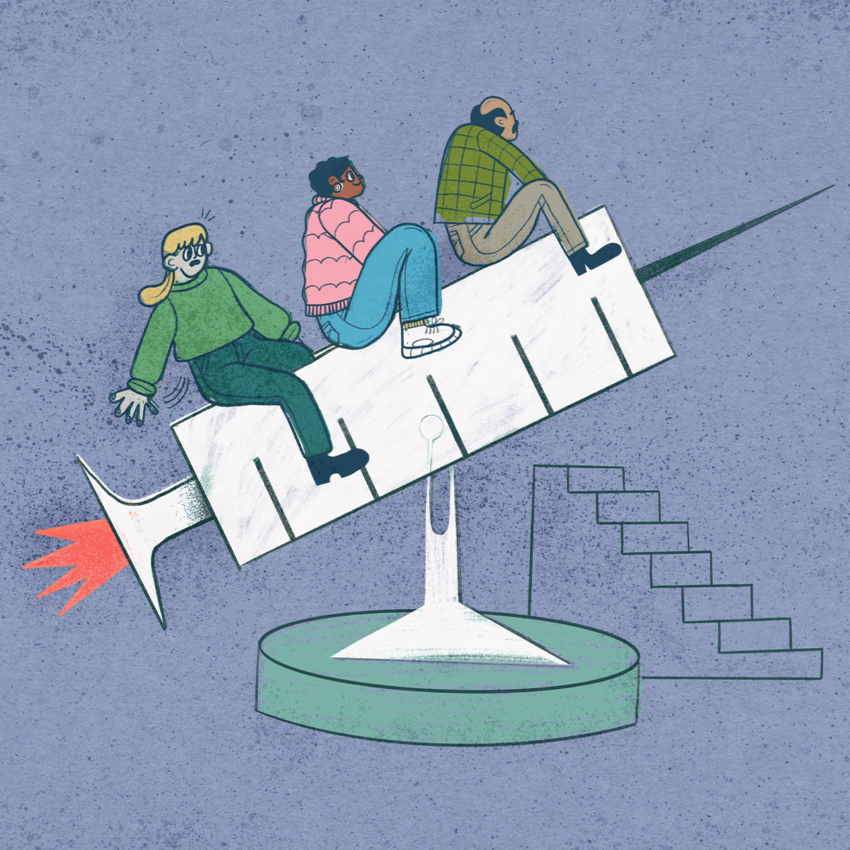
Over the course of this past year it has become glaringly clear that we are not only fighting the COVID-19 pandemic, but also a deeply troubling and growing infodemic.
The World Health Organization defines an infodemic as an overabundance of information in both the online and offline environments. This includes attempts to distribute inaccurate information to undermine public health guidelines or promote alternative agendas.
Information is the currency through which we make decisions — big and small. So any misleading information is a problem. However, when our collective health is at stake, it becomes a deeply concerning issue.
As the WHO puts unequivocally, “misinformation costs lives.” In the absence of factual information, we see consequences that include diagnostic tests not being used, immunization campaigns not meeting their targets and an increase in hate speech.
All this adds up to a devastating result — the pandemic continues.
At this stage in the pandemic, misinformation surrounding vaccines and vaccine distribution is an especially relevant concern.
A study published in Nature conducted in the United Kingdom and the United States investigated how online misinformation about COVID-19 vaccines affects inclination to vaccinate. It found that as of September 2020, fewer people than what is needed to reach herd immunity would certainly take the vaccine. Furthermore, it found that scientific-sounding misinformation has a strong impact on the decline of vaccination inclination.
Although vaccine hesitancy is not new, social media is a unique element.
Derek Cameron, a PhD student in the history of medicine at the University of Saskatchewan says that social media has democratized information, allowing anyone to put out thoughts on any topic.
Cameron says this ease of spreading information has changed the nature of vaccine hesitancy. He explains that anti-vax groups have released their ideas in forms that mimic science articles for a long time.
“Originally in the 1980s they released [a] pseudo-journal [that] … brings out blurbs from certain anti-vaccine scientists … and packages them for a lay audience,” says Cameron.
However, with the advent of social media, the marketing of those ideas has changed.
Now it’s done online like in Facebook groups. He stresses that “this is about finding the best rhetoric and not necessarily about the evidence behind it, but what seems to attract people right off the bat.”
In the hunt for headlines and stories that attract the most attention, this sensationalization is dangerous because it only adds to the already never ending mountain of information.
Cameron says that anti-vax groups generate content that sounds like scientific journalism and that the problem is “it is hard to assess the veracity of claims for [the] average person.”
“It can be hard to tell what is the truth and what is not,” Cameron said.
This on-slaught of information has added to the spectrum of vaccine hesitancy.
Cameron explains that it is no longer a binary choice between taking or rejecting the vaccine.
“Vaccinate, not or try this alternative vaccine that in theory is protecting you [but] in reality is not… I think that reframes the choices people are making around vaccines,” Cameron said.
The priceless question now is: what can be done?
Cameron says the government can do more to regulate and restrict access to non-evidence based information.
He also wants “individuals, governments and public health agencies sharing positive stories of vaccination or just mundane stories of vaccination, creating a true sense of the overwhelming majority of vaccine experiences being … basically a non-event.”
But like with any issue that demands change, we must start with ourselves.
We have been called upon to do many things in this pandemic. Wear a mask. Physically distance. Take classes online. Reduce or eliminate social interaction.
In addition to continuing to adhere to these very important public health guidelines, we must take equal responsibility for the information we are consuming, forwarding and using to make decisions.
Remember, our collective health depends not only on our ability to understand evidence-based health information, but equally on our willingness to combat misinformation wherever we find it.
This op-ed was written by a University of Saskatchewan undergraduate student and reflects the views and opinions of the writer. If you would like to write a reply, please email opinions@thesheaf.com. Vaidehee Lanke is a third-year undergraduate student studying bioinformatics and is the Opinions Editor at The Sheaf Publishing Society.
—
Vaidehee Lanke | Opinions Editor
Graphic: Jaymie Stachyruk
Leave a Reply